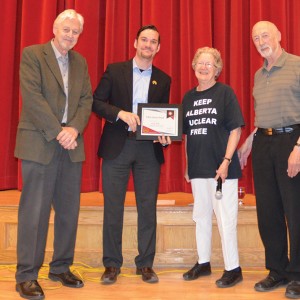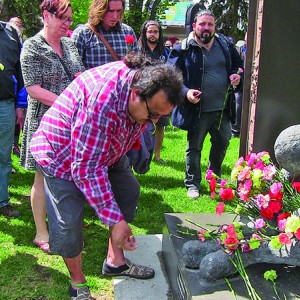Kubrick: Summer, 1987
2017 is the 100th year of Hollywood star Kirk Douglas. He is perhaps the last star left from the days of film noir, a true twentieth century art form within twentieth century cinema. Kirk Douglas also pulled filmmaker Stanley Kubrick to the height of Hollywood to ultimately make enough money to move to an English castle for the rest of his days.
Kirk Douglas starred in Kubrick’s Paths of Glory and Spartacus. Paths of Glory, from 1957, was Kubrick’s first of three anti-war classics within the enormous genre of war movies. 1964 saw the release of his iconic satire of Dr. Strangelove, starring Peter Sellers in three roles. Sellers fan Elvis Presley would repeatedly watch the movie in a specially-rented Memphis theatre, since he could not be a part of a regular movie audience. This movie was sprung on my History/English class along with John Ford’s The Grapes of Wrath and Roman Polanski’s Macbeth. The Kubrick film was something I assumed went along to fit with overall war history cumulating to the Cold War 80s.
The summer of 1987 was notable for two still-remembered Vietnam movies I would see at the Derrick Theatre in Virden, Manitoba. That spring I went with friends to see Oliver Stone’s Oscar winner Platoon. I knew Stone’s previous film Salvador and in real life I had a friend in my church who came to Canada from El Salvador at the age when boys were kidnapped for soldiers. This story was an 80s thing that mattered to me. Late that summer, Stanley Kubrick’s third anti-war masterpiece Full Metal Jacket made it to the Derrick Theatre screen. By age 17 I was starting to discover modern filmmakers making movies that mattered, while at this point kids were discussing things like Revenge of the Nerds or Police Academy. Both of which I admit to having seen. Good movies were in the past old or black and white.
Stanley was someone who bridged the gap of black and white noir to the modern day. Stanley was an artist like late musician David Bowie was an artist as of 1987. Full Metal Jacket went into production when Kubrick heard of a demolished industrial chemical compound neighbouring him in England. He re-cast the ruins with Asian signage and palm trees to make Hue City. The movie starred Matthew Modine, Vincent D’onfrio, and Adam Baldwin as barely legal recruits, and legitimate Paris Island drill officer Lee Emery getting an Academy award nomination for just performing his old job. I was wrapped up in seeing the art and message of the artist at the time it was delivered during the global tensions of the Reagan/Bush era.
Kubrick made use of period music like Oliver Stone had done, reviving 60s hits “White Rabbit” and “Tracks of My Tears”. Kubrick teased the audience with novelty hits from the Dixie Cups and the Trashmen while we watch children learn to kill. When the movie ended with the Rolling Stones’ “Paint It, Black” my friend Pete and I sat there until the credits ended and everyone else left us alone like we were trapped under a collapsed wall. It was a one-of-a-kind time. Likely, most of you know the movie and Stanley Kubrick, but that’s how I saw it 30 years ago in the day that was.
Reinhardt lives in Boyle Street with his wife, Keri Breckenridge.







